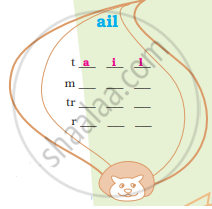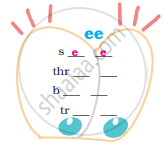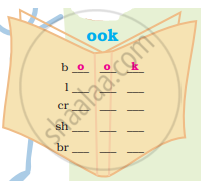Advertisements
Advertisements
Question
What does the title of the story convey?
Solution
The title of the story “All Summer in a Day” conveys human nature and group mentality. For example, it is human nature to doubt one person’s experiences when everyone else in a group. It also shows the darkness of the unenlightened mind.
APPEARS IN
RELATED QUESTIONS
What point is the author trying to make?
Why was each man in the group unaware of self- destruction by his action?
How is the last verse different from the other verse? Is the poet deriving a different mood than that expressed in the previous verse?
Thus I entered, and thus I go!
In triumphs, people have dropped down dead,
"Paid by the world, what dost thou owe
Me? "....God might question; now instead,
'Tis God shall repay: I am safer so.
Read the above lines and amswer the question that follow.
Explain with reference to the context.
Discuss with reference to the story An Angel in Disguise how love has the power to transform.
Show how the story shows a conflict between humans and nature.
Fill in the blank with an appropriate word:
He found the key just _______ the front door.
Re-write the following sentence according to the instructions are given. Make other changes that may be necessary, but do not change the meaning of the sentence.
The monsoon is the best season in our country.
(Rewrite using ‘good’)
Have you heard any boatmen’s songs? What kind of emotions do these songs usually express?
Do you think it is important to preserve languages?
What does the phrase “her barred face identity mask” mean?
‘Don’t expect an English cup of tea’—how does this phrase bring out the contrast between English and American attitudes?
Find out the information about the qualification and eligibility required in the profession related to wild life such as:
Wildlife photographer
The words in the box are all words that describe movement. Use them to fill in the blank in the sentence below.
The birds _______________ at the snake.
1. Given below is a page from a dictionary. Look at it carefully an
(i) find a word which means the same as ghastly. Write down the word and its two meanings.
(ii) find a word meaning a part of the school year.
(iii) find a word that means examination.

2. Now make lists of
(i) all the words on the page (plus any more that you can think of) that begin with terr-
(ii) five words that may follow the last word on the page, that.
(iii) write down your own meaning of the word thank. Then write down the meaning given in the dictionary.
If you see someone lonely or sad you will –
- _______________________
- _______________________
- _______________________
The trinity of democracy comprises three principles. Complete the web to show the trinity of democracy.

Write a character-sketch of the ‘Stranger-man’ using examples from the story to support the following attributes.
- ignorant, innocent, and polite
- calm and cool
- jumps to wrong conclusions
- hasty and unwise at times
When a family member is very ill for long, the grandmother of the family urges everyone to send for a person who claims he can cure victims of black magic. Compose a dialogue with her, in which her granddaughter politely convinces her that she should not believe in such things.
Look inside your thinking hat. Read the evidence/sentences given below and offer a possible explanation of what happened in this house? Make up some questions to gather more information. Now collect all your evidences and write a story in your notebook. Give a suitable title.

Look at the picture given below and frame your own slogan.

Make word families. The first word in each has been written for you.




How did the grandmother spend the last few hours of her life?
Given a chance, any adult would wish to become a child again for many reasons. Fill the boxes with some of what you imagine could be the reasons.
| e.g. I need not worry about project deadlines. | |||
| I can wear my pajamas the whole day. | |||
| I can sleep as long as I like. |
How is that day celebrated?
Develop the following hints into a paragraph.
Two kings - ruled neighboring kingdoms. King Arya - great warrior - looked after - subjects - very well - People loved him - looking - their safety and welfare - all his subjects - very happy - healthy life - King Vaishali on the other hand - very lazy man - spent his time - entertaining - dancing – ignoring - needs or developmental - people - His people - angry - never met them - never listened to their woes.
Powerful Sultan attacked - with his strong army - King Arya’s army - alert - ready - preparedness - enemy - more powerful - love for King even women and children - came to the war-front - fought - protected their King -a different story - King Vaishal - impending war - people started fleeing - King all by himself - not interested to protect - King - did nothing for their welfare.
King Vaishal - realized his foolishness - too late - defeated in the war and fled for his life - King Arya - defeated the Sultan - people to live in peace - King Arya - welfare of his people at heart at all times - subjects - returned his love - loyal and supportive - during testing times.
Summarizing is to briefly sum up the various points from the notes made from the below passage.
The Sherpas were nomadic people who first migrated from Tibet approximately 600 years ago, through the Nangpa La pass and settled in the Solukhumbu District, Nepal. These nomadic people then gradually moved westward along salt trade routes. During 14th century, Sherpa ancestors migrated from Kham. The group of people from the Kham region, east of Tibet, was called “Shyar Khamba”. The inhabitants of Shyar Khamba, were called Sherpa. Sherpa migrants travelled through Ü and Tsang, before crossing the Himalayas. According to Sherpa oral history, four groups migrated out of Solukhumbu at different times, giving rise to the four fundamental Sherpa clans: Minyagpa, Thimmi, Sertawa and Chawa. These four groups have since split into the more than 20 different clans that exist today.
Sherpas had little contact with the world beyond the mountains and they spoke their own language. AngDawa, a 76-year-old former mountaineer recalled “My first expedition was to Makalu [the world’s fifth highest mountain] with Sir Edmund Hillary’’. We were not allowed to go to the top. We wore leather boots that got really heavy when wet, and we only got a little salary, but we danced the Sherpa dance, and we were able to buy firewood and make campfires, and we spent a lot of the time dancing and singing and drinking. Today Sherpas get good pay and good equipment, but they don’t have good entertainment. My one regret is that I never got to the top of Everest. I got to the South Summit, but I never got a chance to go for the top.
The transformation began when the Sherpa Tenzing Norgay and the New Zealander Edmund Hillary scaled Everest in 1953. Edmund Hillary took efforts to build schools and health clinics to raise the living standards of the Sherpas. Thus life in Khumbu improved due to the efforts taken by Edmund Hillary and hence he was known as ‘Sherpa King’.
Sherpas working on the Everest generally tend to perish one by one, casualties of crevasse falls, avalanches, and altitude sickness. Some have simply disappeared on the mountain, never to be seen again. Apart from the bad seasons in 1922, 1970 and 2014 they do not die en masse. Sherpas carry the heaviest loads and pay the highest prices on the world’s tallest mountain. In some ways, Sherpas have benefited from the commercialization of the Everest more than any group, earning income from thousands of climbers and trekkers drawn to the mountain. While interest in climbing Everest grew gradually over the decades after the first ascent, it wasn’t until the 1990s that the economic motives of commercial guiding on Everest began. This leads to eclipse the amateur impetus of traditional mountaineering. Climbers looked after each other for the love of adventure and “the brotherhood of the rope” now are tending to mountain businesses. Sherpas have taken up jobs as guides to look after clients for a salary. Commercial guiding agencies promised any reasonably fit person a shot at Everest.
Write a paragraph of about 150 word, on the following topic.
Need for Moral Education in schools
Write a composition (300 - 350 words) on the following:
Study the picture given below. Write a short story or description or an account of what the picture suggests to you. Your composition may be about the subject of the picture or you may take suggestions from it.

What provisions should be made in public places so that everyone gets the same access to public facilities?
